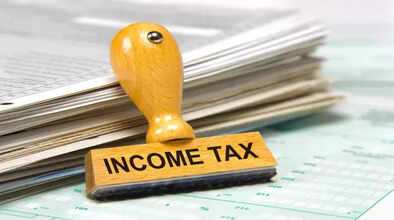Income Tax: Income Tax Department is keeping an eye on your income in this way, if you make a mistake, you will get a notice immediately..

Income Tax Dept cracks down on high spenders hiding income) The Income Tax Department is now working with modern technologies and various government agencies to identify people who hide or under-report their income. The department is keeping an eye on individuals who spend excessively but do not disclose their actual income. This initiative aims to prevent tax evasion and increase financial transparency.
What is the new information?
The Central Board of Direct Taxes (CBDT) has directed institutions like banks, post offices, cooperative societies, fintech companies, and mutual fund houses to submit complete information about transactions of large amounts made during a financial year to the government by May 31.
What are high-value transactions?
When a person deposits or withdraws a large amount of money from his bank account above a certain limit, banks and financial institutions have to inform the Income Tax Department about it. This information is given in Form 61A or Form 61B under the Statement of Financial Transactions (SFT). With this, the Income Tax Department keeps an eye on financial transactions and ensures that tax rules are being followed.
Which transactions are reported to the Income Tax Department?
If a person deposits, withdraws or spends more money in cash than the prescribed limit, then institutions like banks, post offices, and registry offices have to give their information to the Income Tax Department. Know which transactions are required to be reported: (Which transactions are reported to the Income Tax Department?)
Cash payment for bank draft, pay order, cheque, or RBI prepaid instrument-
Limit: Rs 10 lakh or more
Who will report: Bank or cooperative society (Form 61A)
Cash deposit in a savings account-
Limit: Rs 10 lakh
Who will report: Bank, co-operative bank or post office
Cash deposit or withdrawal in the current account-
Limit: Rs 50 lakh
Who will report: Bank or co-operative bank
Purchase, sale of land or house-
Limit: Rs 30 lakh
Who will report: Registry Office (Form 61A)
Cash investment in shares, mutual funds, debentures or bonds-
Limit: Rs 10 lakh
Who will report: The concerned company or mutual fund trustee
Note: If the money is from one scheme If the amount has been transferred to another account, reporting is not necessary.
Credit card cash bill payment -
Limit: Rs 1 lakh
Who will report: Bank or co-operative society
Non-cash payment of credit card (online or cheque etc.) -
Limit: Rs 10 lakh
Who will report: Bank or co-operative society
Transactions in foreign exchange (such as foreign expenses through forex card, debit, credit card, traveler's cheque) -
Limit: Rs 10 lakh
Who will report: Person licensed under the Foreign Exchange Act
Cash deposit in fixed deposit or recurring deposit -
Limit: Rs 10 lakh
Who will report: Bank, co-operative bank, Nidhi company or NBFC
Steps taken by the Income Tax Department
Improvement in Form 26AS -
Now this form not only contains tax information but also information about your big transactions (SFT i.e. Specified Financial Transactions). Also, now a new system named 'AIS (Annual Information Statement)' has been started, where you can see the details of all your financial transactions.
TDS (Tax Deduction) on Cash Withdrawal-
If a person withdraws more than Rs 1 crore in cash in a year, then 2% TDS will be deducted from it. But if someone has not filed an ITR for the last three years, then 2% TDS will be deducted on cash withdrawal of more than Rs 20 lakh and 5% TDS will be deducted on withdrawal of more than Rs 1 crore.
Filing ITR is mandatory-
It is mandatory to file an ITR if the annual income is more than ₹ 2.5 lakh. Apart from this, from April 2019, there is also a rule that even if your income is low, you will still have to file ITR if you have deposited more than ₹ 1 crore in your bank current account, spent more than ₹ 2 lakh on foreign travel, or paid electricity bill of more than ₹ 1 lakh.
Disclaimer: This content has been sourced and edited from Hr Breaking. While we have made modifications for clarity and presentation, the original content belongs to its respective authors and website. We do not claim ownership of the content.

